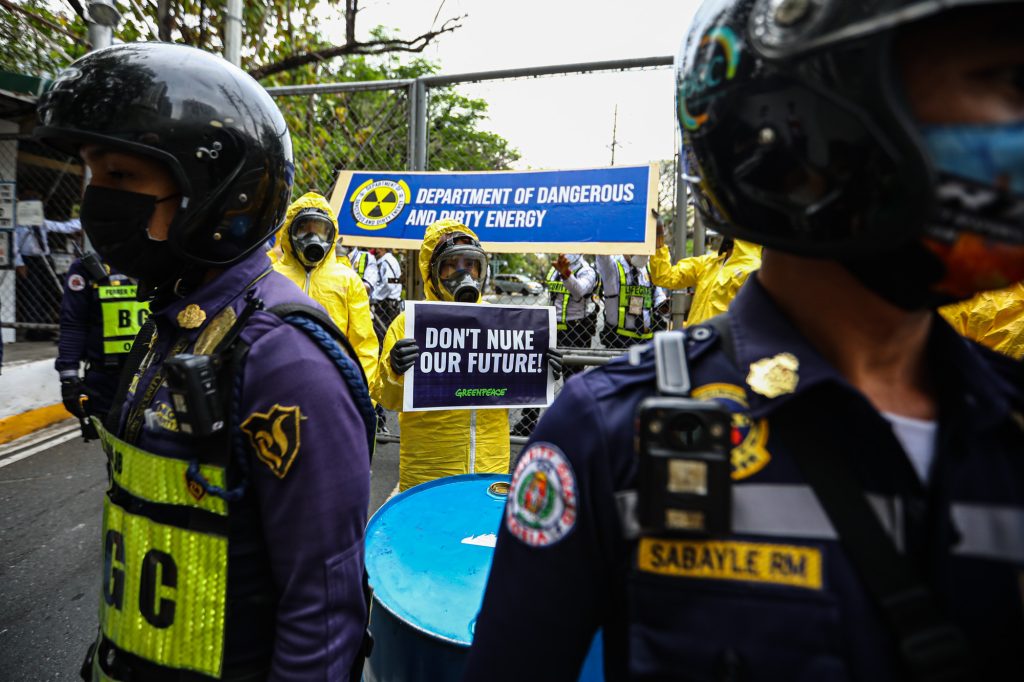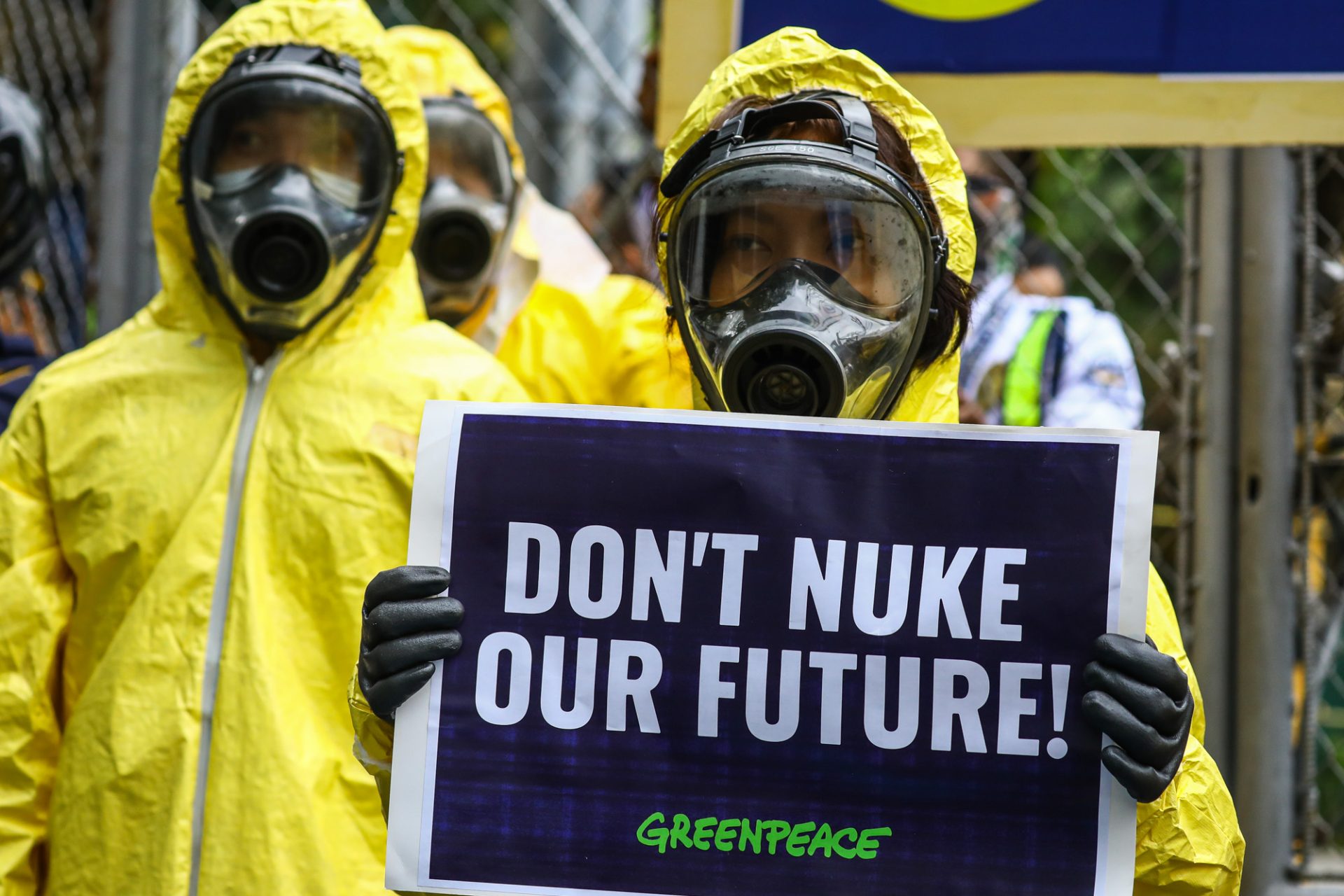Pro-environment activists this week called on the Philippine government to stop playing with dirty energy, saying that nuclear power will not solve the climate crisis.
A group of Greenpeace activists delivered “radioactive waste” barrels at the entrance of the Department of Energy (DOE) main office in Manila on Friday, March 11, to demand that the agency “stop acting like a loyal minion of the nuclear industry.”
“The DOE is the #1 cheerleader for the nuclear industry in the Philippines, so it’s only apt that we have renamed it for what it really is: a dangerous peddler of foreign nuclear energy interests disguised as a Philippine government agency,” said Greenpeace campaigner Khevin Yu.
The activists, wearing hazmat suits, carried a banner that has “Department of Dangerous and Dirty Energy” printed on it.
Yu said “it’s abhorrent” how the government and the Energy department “relentlessly pursued nuclear deals … when they could have doubled their efforts to ensure renewable energy gets a better foothold in the country’s future energy direction.”
“As it is, the DOE’s questionable energy policy is potentially going to leave Filipinos a colossal financial burden, aside from more white elephants from an obsolete technology marketed by an industry that’s already in decline,” said Yu.
He said it is the last thing Filipinos need “when we’re already facing a record-high debt of Php12 trillion and skyrocketing prices of imported fuel.”
The group Green Thumb Coalition also expressed opposition to the government move to implement a new nuclear energy program and warned of the dangers of the program
On February 28, President Duterte signed Executive Order No. 164, adopting a national position for a nuclear energy program.
“Greenpeace is demanding the Duterte administration to revoke EO 164. We believe it is a treacherous move spurred by misguided interests that are not aligned with the interests of the Filipino people,” said Greenpeace’s Yu.

Friday’s protest action took place on the anniversary of the Fukushima Daiichi nuclear disaster in 2011, which killed at least 20,000 people, forced the evacuation of half a million more, contaminated 240,000 square kilometers of land, and damaged about US$235 billion worth of property and infrastructure.
The plant’s accident clean up costs have been estimated at Php16-36 trillion over 40 years, and its decommissioning is estimated to cost at least Php3.6 trillion.
“In total, these costs dwarf the total budget of the Philippine government for 2022, at Php5 trillion,” said Greenpeace in a statement.
Greenpeace maintains that nuclear power will not solve the climate crisis, saying that the entire nuclear power plant life cycle contributes significantly to climate change, and these facilities take an average of 10 years to build.
The Intergovernmental Panel on Climate Change has earlier warned that humanity has only until 2030 to keep global temperature rise within 1.5C.
Greenpeace called on presidential candidates to scrap all plans to include dirty and dangerous energy sources, such as nuclear, waste-to-energy, and coal, to the country’s energy mix if elected.







